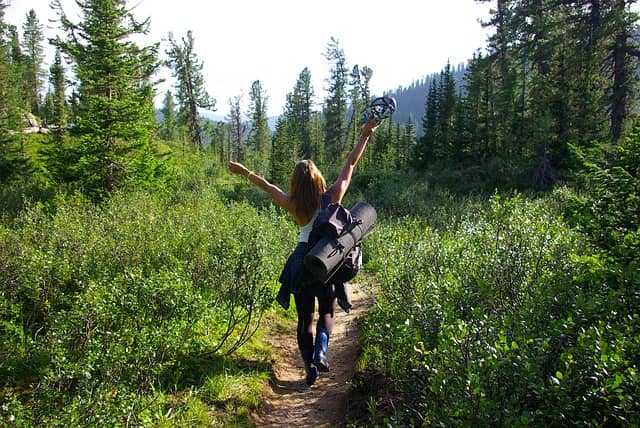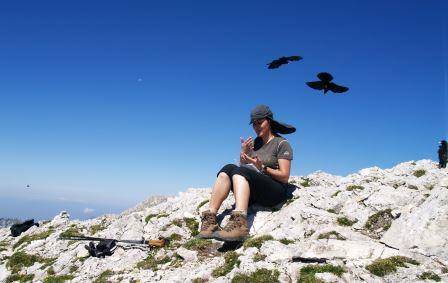Hiking is good for your health because it can help you reduce your stress levels, improve your moods and even better reduce your risks for heart disease. It can also improve your bone density and give you better control of your weight.
Despite the benefits that come with hiking, you must be aware of hiking best practices, especially if you’re hitting the trail for the first time. Knowing hiking best practices will also help you avoid potential hiking mistakes, which may put your hiking career in jeopardy.
What are the Common Mistakes in Hiking that Need to be avoided?
If you’re contemplating going on the trail for the first time, then we created this guide for you. It doesn’t really matter whether you’re going solo or in a group.
After reading this guide, you will know common hiking mistakes made by beginner hikers and, most importantly, how you can avoid them. Read on.
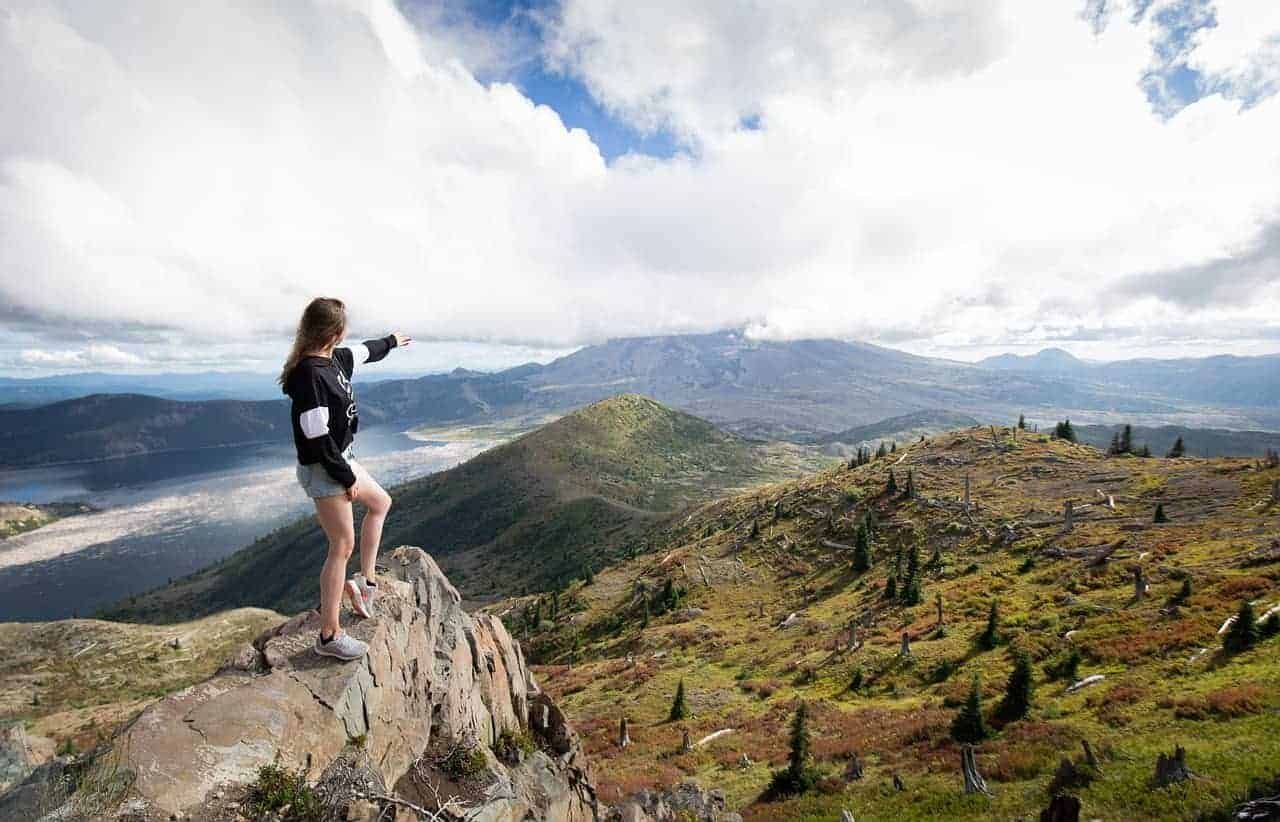
I. Going with Cheap Hiking Gear
Do note that the quality of the hiking gear you choose will have a hand in the type of experience you will get on the trail. This doesn’t imply that you must buy expensive hiking equipment.
Besides, they shouldn’t necessarily be very cheap as the price also correlates with the quality of the gear. The price should be reasonable, and the hiking equipment you choose should be the type that can withstand the rigors with the rigors that come with hiking.
The takeaway, in this case, is to ensure that your hiking gear fits your budget and still meets your expectations. You do not want to arm yourself with pieces of equipment that will easily break when you’re on the trail.
To avoid this, your best bet would be to do extensive research before settling on hiking gear. Real quick, here are three things that you should look for when buying hiking equipment;
- The Reviews: The hiking gear should have good reviews from other hikers
- Return Policy: The company you’re buying your hiking equipment from should have a favorable return policy.
- Reputation: It would be best to avoid any random backstreet vendors and get your hiking gear from a company with a good reputation. This way, you will have lesser risks of being ripped off your money.
II. Burdening yourself with Too Much Weight
For most beginner hikers, a huge backpack is what will most likely come to mind first when they think about hiking. This doesn’t imply that you shouldn’t have a big backpack for the items you will need when hiking.
Your focus should be only to carry a backpack so you wouldn’t struggle to navigate the terrains. This is important because if you carry heavy weight from the start, there is a risk of too much pressure on your joints, implying that you would also have a higher likelihood of suffering injuries.
Obviously, the injuries, even the minor ones, won’t make your hiking experience a really good one. Begin by only carrying the items you will need and only add extra items when you’re certain that you’ve gotten into shape.
III. Poor Eating and Drinking Habits
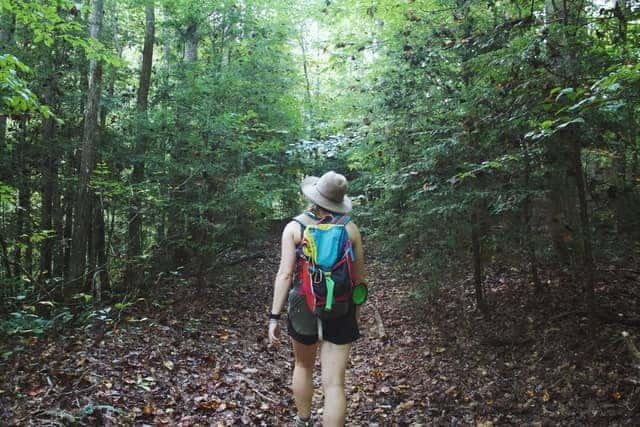
Eating lesser food or drinking lesser water is a common mistake among beginner hikers. As a general rule before hitting the trail, be sure to have a good supply of food and water.
It is acknowledgeable that you may feel so exhausted even to make your meals after a long day of hiking. If you think this may be a challenge, be sure to have packed meals you can eat and store them properly when on the trail or in the camps to avoid attracting wild animals.
Keep yourself hydrated always too. Snacking during your hike would also be fine, provided that you’re snacking on the right foods or drinks.
Note that poor eating habits may be fueled by frustrations. Therefore, ensure that you leave everything well taken care of at home.
IV. Poor Packing
You do not want to hit the trail only to realize that you do not have the hiking essentials when it’s late. Therefore, as a rule of thumb, be sure to do your research to ensure that you know the items you will need for the hike.
Ideally, you may need to check with other experienced hikers, do your research, and have a gear checklist for your trip. Ensure that the items you will need when on the trail are all packed and easy to access.
V. Overlooking the Weather
Several beginner hikers make the mistake of not considering the weather before hitting the trail. You do not want to soak up in the rain, be troubled by extreme cold, or carry pieces of camping gear you may not need.
To be on the safe side, your best bet would be to make your hiking plan around the weather forecast. Depending on the trail, you may want early morning summits to avoid bothersome rains in the afternoon.
VI. Hiking on Your Own
Hiking on your own may be fulfilling if you’re on a mission for spiritual awakening. However, if you’re going to hike over long distances, this may not be the best idea.
Therefore before you begin your adventure, spare some time to get to know seasoned hikers you can connect with to guide you through. Connecting with veteran hikers is a bright idea because it gives you the best chance of knowing some of the tips for success or survival on the trail even when you are alone.
VII. Not Monitoring your Time and Pace
If you’re hiking for the first time, your pace may not be one of the quickest. This is natural, so you really shouldn’t feel scared about this.
Now, to avoid being caught up with time, it is advisable that you take time to estimate the timetable of when you can expect to get to your destination. Again, the knowledge of seasoned hikers may help in this case.
You can get a better evaluation of how long it may take you to get to your destination by looking into the weather and the hike’s difficulty. With that in mind, you can then estimate the number of hours you may need to get to your destination.
Your focus should be to summit the mountain and still get enough time left to get to your campsite by sunset. If you are not sure about the exact miles you can cover every hour, it may help if you evaluate with just one mile for every hour.
VIII. Separating from the Group
A common mistake among beginner hikers is moving slower, which makes them unable to maintain the pace with the group. Remaining behind the group is like brewing a disaster for yourself.
If, for instance, you’ve left so much behind and you get stuck in the sudden darkness, storm, or wrong turn, or you suffer an injury, trying to initiate communication with other team members can be difficult or, even worse become impossible.
You do not want to go through this frustration, especially with the risks that come with such complications. Therefore, to be safe, try to keep up with the group.
A perfect strategy that may help you or other slower hikers avoid being left behind is agreeing that the whole group gets a rest at every trail junction. Alternatively, the fast hikers would also need to slow down, or you decide on a reliable person who can set the pace for the whole group.
IX. Forgetting that First Aid is a Priority
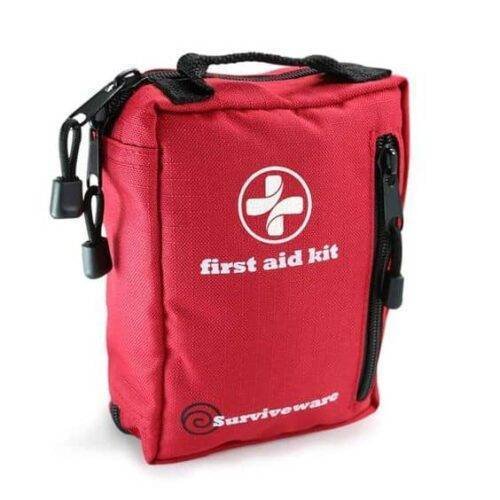
It isn’t uncommon for beginner hikers to forget about first aid despite the risks that come with forgetting your first aid kit. Other than omitting the first aid kit, other beginner hikers also carry excess medical aids in the kits.
Do note that no hike is entirely risk-free irrespective of the terrain. Therefore as a general rule, you should give the first aid kit as much priority as you’d give your clothing.
Ensure that your kit is enough to sustain the entire trip and, most importantly, the size of the group you’re hiking with. Avoid carrying supplies you will not need, as this will only add to the load you’re carrying. Importantly, it is also advisable that you carry just the items you know how to use.
X. Ignoring the Environment
Many beginner hikers assume the environment, is something that may be costly for them in the long run. It really doesn’t matter how long you wish to stay in the region.
Think about the wildlife and take caution or responsibility. To prepare for and minimize wildlife encounters on the trail, it is advisable that you do not have your headphones on when hiking.
If you hike with your pets or children, be sure to keep them close to you. Finally, it would also help if you travel in groups and make noise.
Regarding responsibility, do not discard your bottles or food wrappers anyhow. Your gates should remain closed, and be sure not to leave any trace behind.
In Closing
Your aim should be to get the best experience out of hiking. Try to keep mistakes at the minimum by preparing adequately and enjoying yourselves. Do not forget about your camera, for you will need it for capturing some of the most amazing shots when on the trail.
Author Bio:

CONTRIBUTOR: Justin Osborne
Justin is a travel writer for uk.bestessays.com, and a blogger from Leicester, UK. He likes to discuss travels and share his own ideas with readers on different blogs and forums. Currently, he is working as an editor at the essay writer service.

